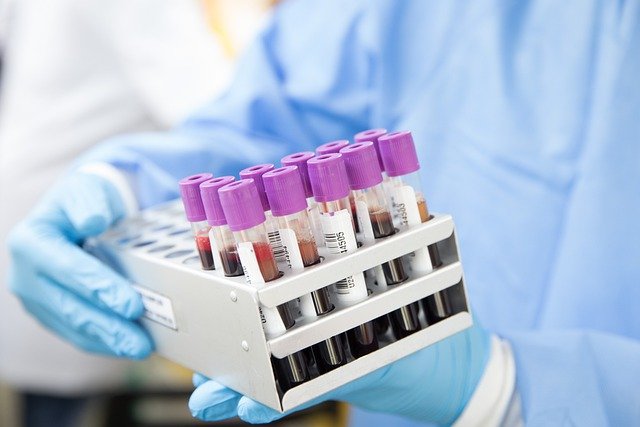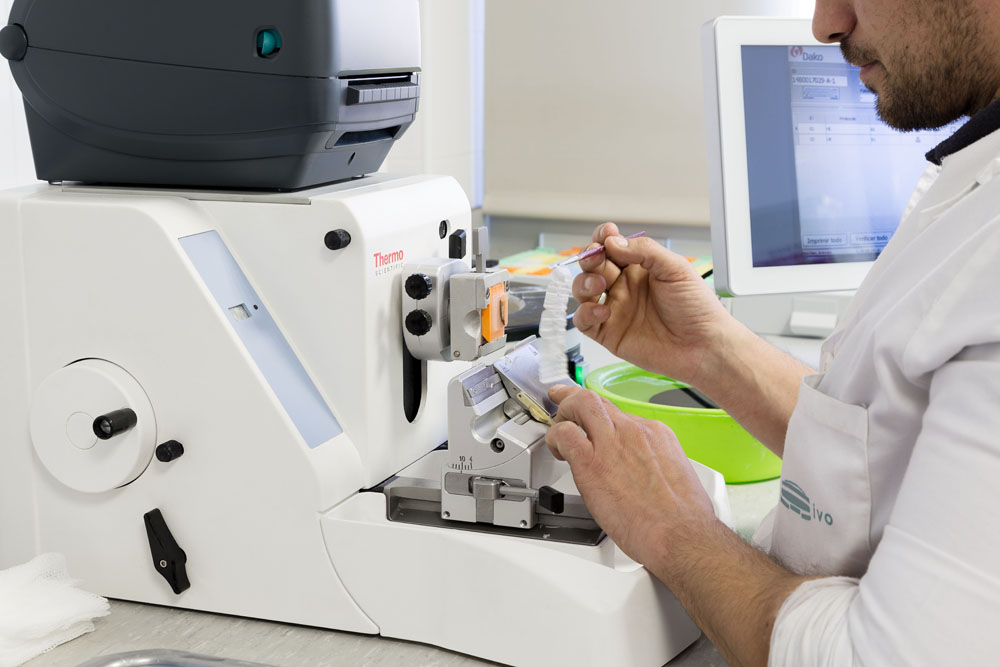The main symptom is bone pain, which occurs in 75% of patients (mainly in the spine and ribs).
Other possible manifestations are due to a lack of red blood cells (tiredness, weakness, palpitations, dizziness) or altered platelet function (easy bruising, bleeding from the nose or gums). In addition, there may be weight loss, frequent infections and, on occasion, the appearance of true plasma cell tumours (plasmacytomas). Eighty percent of patients present with osteoporosis, osteolysis (when one or more areas of a bone are worn away and shrink), or bone fractures at the time of diagnosis.
Diagnosis is based on the demonstration of an abnormally high amount of a certain type of immunoglobulin in the blood and/or urine and an excess of plasma cells in the bone marrow.
Finally, X-rays of all bones should be performed. Other common abnormalities of this disease found upon analysis include increased creatinine (renal failure) and plasma calcium, anaemia and decreased platelet count.






